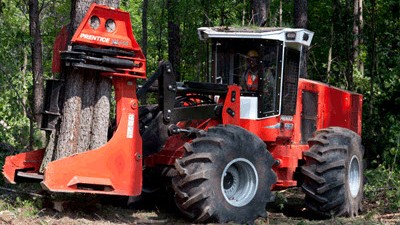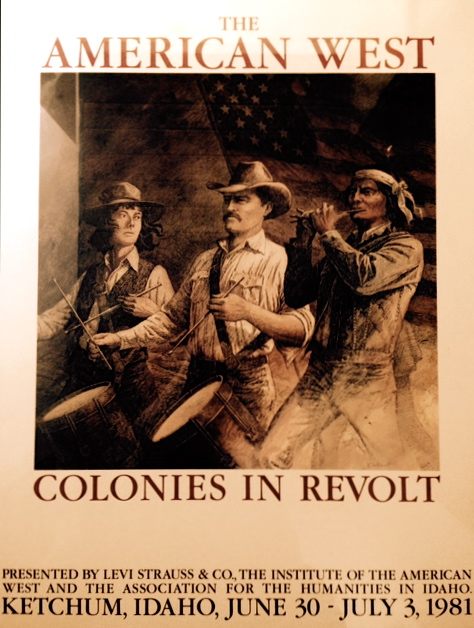Another Sequel to the Sagebrush Rebellion
By: John A. Baden, Ph.D.Posted on March 18, 2015 FREE Insights
I am an economic anthropologist by both inclination and training. Connections linking culture, economics, and politics seem obvious. And among sane people, coherence usually links these conceptually distinct arenas. Here is an example.
When traveling I'll usually visit a Cabela's store if I happen across one. Their wildlife displays are remarkably well crafted. But that is not my only interest. I also cruise their vast parking lots looking for a diesel pickup sporting an Obama bumper sticker. I do the same at gun shows. So far the score for both is zero.
No surprise. Cultures cohere. An Obama sticker in Cabela's lot is probably even more rare than an NRA sticker at an NPR fundraiser--or in the parking lot of a Unitarian church.
Last weekend I attended the gun show at the Gallatin County Fairground. This too is an anthropological experience. Buying and selling guns isn't the main attraction for those who pay the $5.00 admission to attend. Rather, it's actually a tribal gathering. Among attendees there is a presumption of some shared values.
I stopped by one table featuring off-the-grid electronic gear. The proprietor was a displaced logger. He had run feller-bunchers* for two decades but the lumber mills in his part of north west Montana had all shut down. *(A feller buncher is a type of harvester used in logging. It is a motorized vehicle with an attachment that can rapidly cut and gather several trees before felling them. Some also limb the trees and cut them to length.) Mill closings were not for a lack of merchantable timber but rather due to "damn environmentalists", people who hate the working rural people. The Greens are "parasites sucking the strength out of America". They identify with a different tribe.

Since I was at the gun show, and had told him of working in the woods when young, he assumed I agreed with him. It's time, he claimed with passion, to transfer federal lands "back to the states". If this happened the economy would be restored and prosperity returned. I'd seen this movie several times before with the title Sagebrush Rebellion. It's playing yet again.
The Sagebrush Rebellion was a movement during the 1970s and 1980s seeking major changes to federal land control, use, and disposal policy in the American West. Movement supporters advocated state control or ownership. For some privatization was an ultimate goal.
Among the photos and posters on my office walls is this one from 1981, The American West: Colonies in Revolt. It announced a public meeting in Ketchum, Idaho. The Idaho Humanities Council sponsored the meeting, one of the many public discussions regarding the "sagebrush rebellion".

The issue again became prominent in the late 1990s. It is too bad people waste their energy and emotions on this dream. The script is fatally flawed--and on multiple dimensions. The fundamental problem is one of perverse incentives generated by political management. And each politically generated distortion builds a constituency. This process demonstrates one of many pathologies of political capitalism.
In July of 1997 Randall O'Toole provided an excellent analysis of the federal land management problem. "Should Congress Transfer Federal Lands to the States?” Randall's examination was published as a policy paper of the CATO Institute.
In Montana the issue arose again this spring when Kerry White introduced House Bill 496 to study the feasibility of transferring Forest Service and BLM land to the state. (It was tabled in committee.) An argument advanced in support of that bill is the claim that the state manages land better than the federal government. What is "better", however, depends on what values one seeks from the lands.
Here are some fundamentals behind the protracted, recurrent debate over land transfers. The federal government owns about thirty percent of America, some 650 million acres of natural resource lands. Three agencies in the Department of the Interior and one, the Forest Service, in Agriculture, manage these lands. Here was O'Toole's libertarian perspective on the process.
"Before the 1870s, Americans supported the land disposal policy and most would have thought the idea of the federal government's maintaining large holdings a threat to their freedom....
To turn federal lands into an asset, rather than a liability, for taxpayers, as well as ensure that they will be managed with both commodity and environmental interests in mind, the lands must receive much better insulation from politicians than would be provided by merely transferring them from one political entity to another...."
Dissatisfaction with federal and state land management is inherent in our system of political capitalism. Various environmental and economic elites make accommodation with the land management bureaucracies and the politicians who determine their budgets. Both enlist and mold public support for their positions.
Sportsmen, environmentalists, and outdoor recreationists of all types see flaws in federal management. However, their fear of commodity interests capturing control under proposed state management trumps their criticism of federal agencies. A largely sympathetic media continually reinforces these fears.
Further, ever fewer people are directly dependent on commodity production from federal lands. As the former feller-buncher operator told me, each machine such as the one he ran displaced nine sawyers in the woods. The trend has been ever downward for commodity interests.
I'll end with my long-standing recommendation. Ideally, most of the federally owned lands should be converted to public trusts. All should be self-supporting. Otherwise management decisions will remain dependent on political power and manipulation of data, analysis, and people. These public trusts should be prohibited from receiving taxpayer support unless specifically authorized by bonds approved by large majorities.
Of course this recommendation will remain a fantasy until governmental funds for discretionary purposes such as land management are exhausted. Economist Laurence Kotlikoff of Boston University estimates America actuarial deficit to be 210 trillion dollars. This is sixteen times the official "cooked books" number.
Prof. Kotlikoff testified that this financial reality check is coming soon. (fn. America’s Fiscal Insolvency and Its Generational Consequences Testimony to the Senate Budget Committee February 25, 2015.) Until it does, political capitalism reigns. Don't be surprised if we see still another sequel to the sagebrush rebellion. It is the logical consequence of political capitalism.

